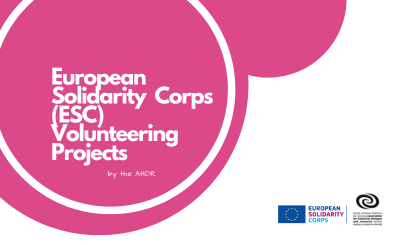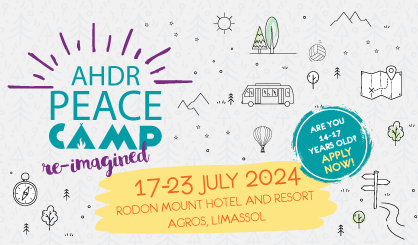Opinion piece on "Policy Paper: Education for Sustainable Peace in Cyprus"
To work towards sustainable peace is simultaneously to work against all forms of violence, both the obvious and visible ones and the slower and imperceptible ones which are nevertheless consequential for the island’s future.
This policy paper encapsulates a lot of what I have been thinking over the years. The paper provides a vision for Cyprus’ future in a comprehensive but also succinct way. The authors draw productively on the international scientific knowledge base but also on extensive local consultation to offer us an ambitious yet practical vision on how to work towards sustainable peace in Cyprus. Having a social vision which is not exhausted by simplistic understandings of peace as the absence of visible violence but one which is rather informed by a deeper processual understanding of what needs to be done to cultivate and maintain peace—ongoing, sustainable peace—is important, given that such a vision can orient a society towards a future which is neither magical nor apocalyptic but grounded in collective work and hope.
To work towards sustainable peace is simultaneously to work against all forms of violence, both the obvious and visible ones and the slower and imperceptible ones which are nevertheless consequential for the island’s future. Climate change and environmental degradation is one of the challenges that the island is confronted with. The paper touches on this challenge pinpointing the need for a renewed understanding and a new narrative that can reorient our efforts in building sustainable peace on the island. Granted, this challenge is not unique to Cyprus but a global one of existential proportions; yet, Cyprus, given its geographical location will have, perhaps, sooner than many other places on earth, be confronted with the problem of rising temperatures and environmental degradation and will have to bear the adverse consequences of this development.
Though climate change is clearly a negative development for Cyprus, the region and the world at large, it also offers an opportunity for the residents of the island to work collaboratively to address a problem that is of paramount significance, is not limited to either side but cuts across the divide and cannot be contained in any meaningful way by any sort of separation and division. Indeed, the opportunity to work across the divide to address climate change and environmental degradation is the sort of challenge that can also help Cyprus overcome some of its inward-looking tendencies and to look beyond to the wider world which demands new forms of alliances and solidarity that overcome entrenched conflicts. The political and territorial division of Cyprus will, no doubt, continue to preoccupy and shape visions for the island’s future and that is perfectly understandable for without a sustainable solution to the political problem, the island will remain removed from the prospect of a sustainable peace. Nevertheless, and while that may remain a key goal for Cyprus’ future, addressing wider social and environmental challenges may also help in creating more encompassing frameworks for understanding peace and working towards it as the paper suggests.
To address climate change in the context of a sustainable kind of peace for the island, we need new and more expansive pedagogies—not just for our immediate environment but, as the authors suggest, of/for the planet. Such pedagogies would certainly include formal education initiatives but would also need to move beyond institutional forms of education to explore, build and cultivate collaborative ventures and partnerships of all sorts: between children and adults; students and teachers; schools and communities; NGOs and research organizations; youth organizations and local administrations, not name just a few. In recent years, children and young people have shown us the way with their climate activism and their expansive narratives for creating a more inclusive planet not just for humans but for non-human others as well. This kind of active citizenship and civil courage, as the paper suggests, should be embraced and supported enhancing opportunities for pedagogical approaches that seek to create sustainable peace in a sustainable environment for all who live on the island. The challenge is, of course, to create, support and enhance spaces for democratic participation and collective decision-making that are inclusive of all difference--ethnic, gender, generational, etc—and ensure that all who can and want to participate in building sustainable peace will be able to do so. There is no recipe for building sustainable peace. To the extent that it can happen, it will have to be based on collective work which will create the conditions for a sustainable world that will outlive the kinds of problems and challenges that the island is currently facing.
Spyros Spyrou,
University Professor in Sociocultural Antropology

News
March 21, 2024
Call for Greek Speaking European Solidarity Corps (ESC) VolunteersApply by 31st of March!
Learn More
News
March 15, 2024
AHDR Peace Camp ReimaginedAn activity-filled summer camp designed for twenty two young people aged 14 - 17 years old!
Learn More
News
March 04, 2024
Educational Visit to Berlin, "Exploring Co-existence – Learning Together"Educational Visit to Berlin, "Exploring Co-existence – Learning Together"
Learn MoreStay up to date with our news and events
